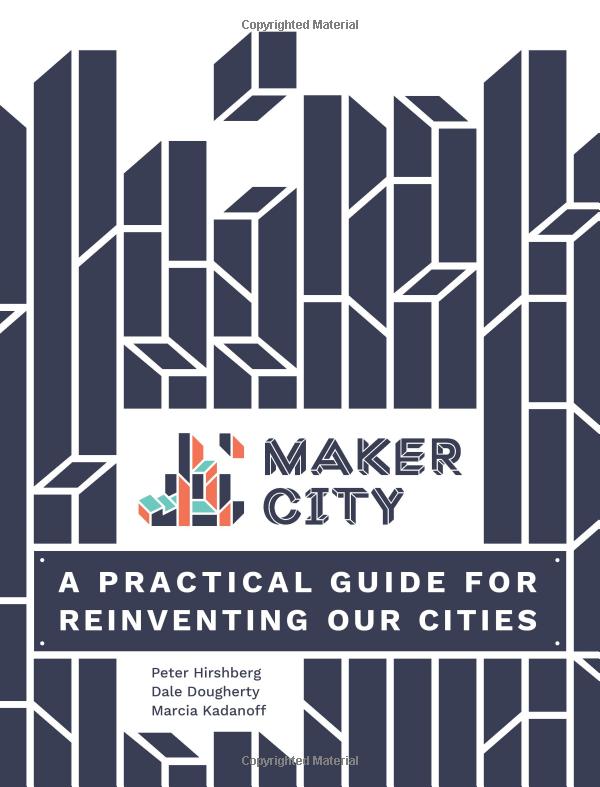 Book by Peter Hirshberg, Dale Dougherty, and Marcia Kadanoff: “Maker City, or the Maker City Playbook is a comprehensive set of case studies and how-to information useful for city leaders, civic innovators, nonprofits, and others engaged in urban economic development. The Maker City Playbook is committed to going beyond stories to find patterns and discern promising practices to help city leaders make even more informed decisions.
Book by Peter Hirshberg, Dale Dougherty, and Marcia Kadanoff: “Maker City, or the Maker City Playbook is a comprehensive set of case studies and how-to information useful for city leaders, civic innovators, nonprofits, and others engaged in urban economic development. The Maker City Playbook is committed to going beyond stories to find patterns and discern promising practices to help city leaders make even more informed decisions.
- Chapter 1: Introduction and a Call to Action
- Chapter 2: The Maker movement and Cities
- Chapter 3: The Maker City as Open Ecosystem
- Chapter 4: Education and Learning in the Maker City
- Chapter 5: Workforce Development in the Maker City
- Chapter 6: Advanced Manufacturing and Supply Chain inside the Maker City
- Chapter 7: Real Estate Matters in the Maker City
- Chapter 8: Civic Engagement in the Maker City
- Chapter 9: The Future of the Maker City
Maker City Project is a collaboration between the Kauffman Foundation, the Gray Area for the Arts, and Maker Media. Read for free here: https://makercitybook.com/“
